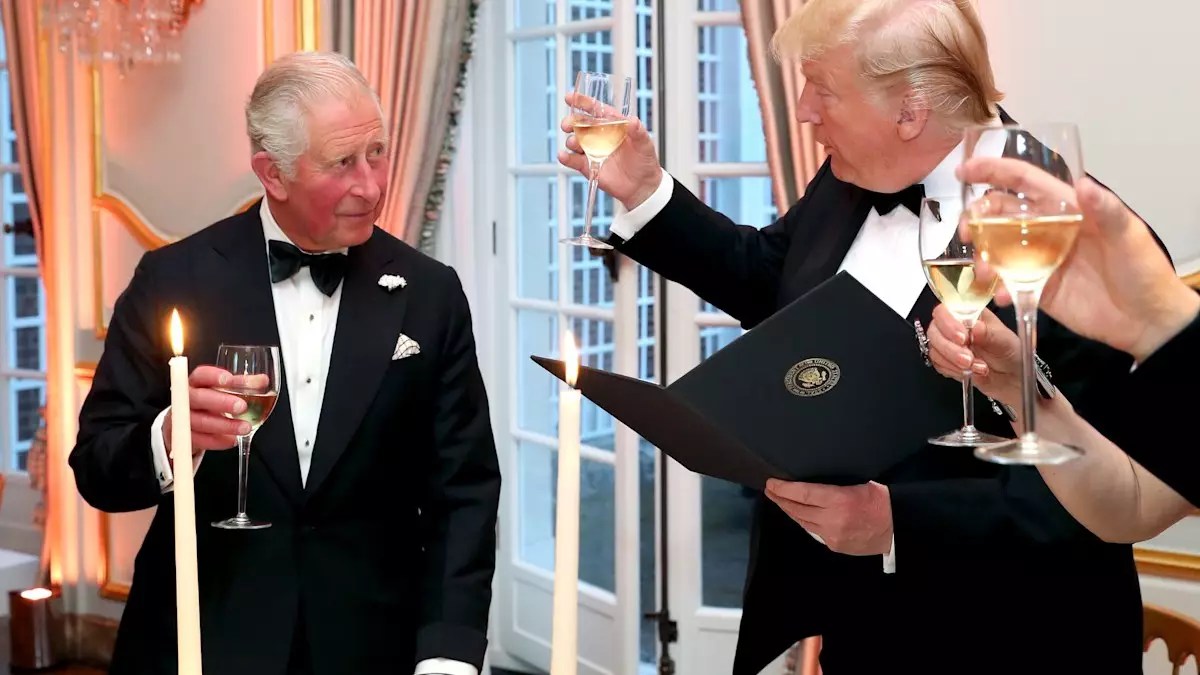In a surprising turn of events, former President Donald Trump has announced his upcoming second state visit to Buckingham Palace, marking a significant moment in diplomatic relations between the United States and the United Kingdom. This invitation, which he described as a “fest,” is notable as such visits are typically reserved for first-term presidents. Trump highlighted the singularity of this occasion, noting that it is unprecedented for one individual to receive such a welcome twice, stating, “And the reason is we have two separate terms, and it’s an honor.” This singular honor speaks volumes about the evolving dynamics of international relationships and the selective protocols that govern them.
Trump’s declaration of friendship towards King Charles III and the entire royal family showcases his desire to establish deeper ties with the British monarchy. He emphasized his respect for the royals, particularly praising King Charles and Prince William. Such flattering remarks indicate Trump’s intent to strengthen bilateral relations, a move that seems particularly calculated in today’s complex geopolitical climate.
Contextual Significance
To fully appreciate the implications of this state visit, one must consider the historical context surrounding state visits themselves. Typically inaugurated by a head of state at the request of the reigning monarch, these visits serve not merely as ceremonial occasions but as platforms for invigorating diplomatic discussions. Trump’s first state visit in June 2019 encapsulated this, as he partook in a series of engagements designed to bolster UK-American ties, including a State Banquet hosted by the then-Queen Elizabeth II. However, what makes this impending visit even more significant is the fact that Trump is set to engage with King Charles, who has taken the throne amid changing social and political landscapes, both domestic and international.
This second visit is emblematic of a more flexible interpretation of longstanding protocols. British Prime Minister Sir Keir Starmer’s actions—presenting Trump with a royal invitation during an Oval Office meeting in 2025—further underline the strategic maneuvers taking place behind the scenes. Starmer’s assertion that Trump’s invitation “symbolizes the strength of the relationship between us” is illuminating, hinting at the British government’s willingness to prioritize diplomatic relations with a controversial figure, in hopes of fostering future collaboration.
The Diplomatic Dance of Power
Trump’s relationship with the British royal family is characterized not only by admiration but by mutual acknowledgment of power. The former president is unabashedly a fervent admirer of the monarchy, which was illustrated in his previous interactions with the royals. His meeting with Prince William in December 2024 showcased a personal connection that transcends mere political alliance, as they reminisced about the late Queen and discussed family. This illustrates a rare alignment of both personal and political spheres, reinforcing the notion that diplomacy can be as much about individual relationships as it is about policy.
Critics may argue that such honors should not be extended to figures like Trump, especially considering the controversies surrounding his presidency. However, the complex realities of international relations often dictate that pragmatic considerations outweigh ideological disputes. The UK’s willingness to embrace Trump in a formal capacity may reflect a desire to maintain stable ties with the United States, regardless of domestic political divisions.
Repercussions and Future Implications
The ramifications of this upcoming state visit are profound and multifaceted. For Trump, it serves not only as a platform to bolster his own political image but also as a potentially influential lever in shaping U.S.-UK policies moving forward. For the United Kingdom, accommodating Trump could yield both short- and long-term advantages, whether through economic deals, military alliances, or leveraging British cultural influence in American society.
The spectacle of Trump being honored again in such an overt fashion by a foreign nation poses significant questions about the evolving nature of diplomatic traditions and whether they are adaptable based on the political climate. As a figure who stirs passionate feelings both for and against him, Trump’s state visit to Buckingham Palace will undeniably act as a litmus test for contemporary diplomacy in an era marked by rapid change and unpredictability.







Leave a Reply